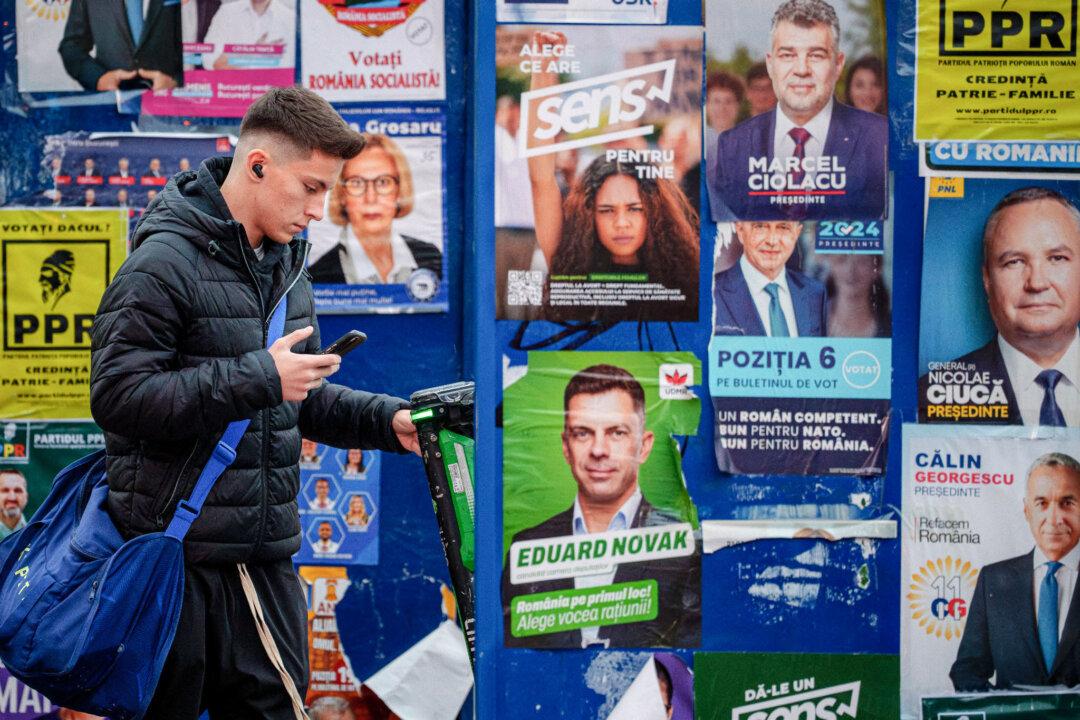Calin Georgescu, an independent right-wing populist candidate who campaigned primarily on TikTok, won the first round of Romania’s presidential election on Nov. 25.
Georgescu, 62, and Elena Lasconi, leader of the opposition center-right Save Romania Party, advanced to the second round set for Dec. 8.





